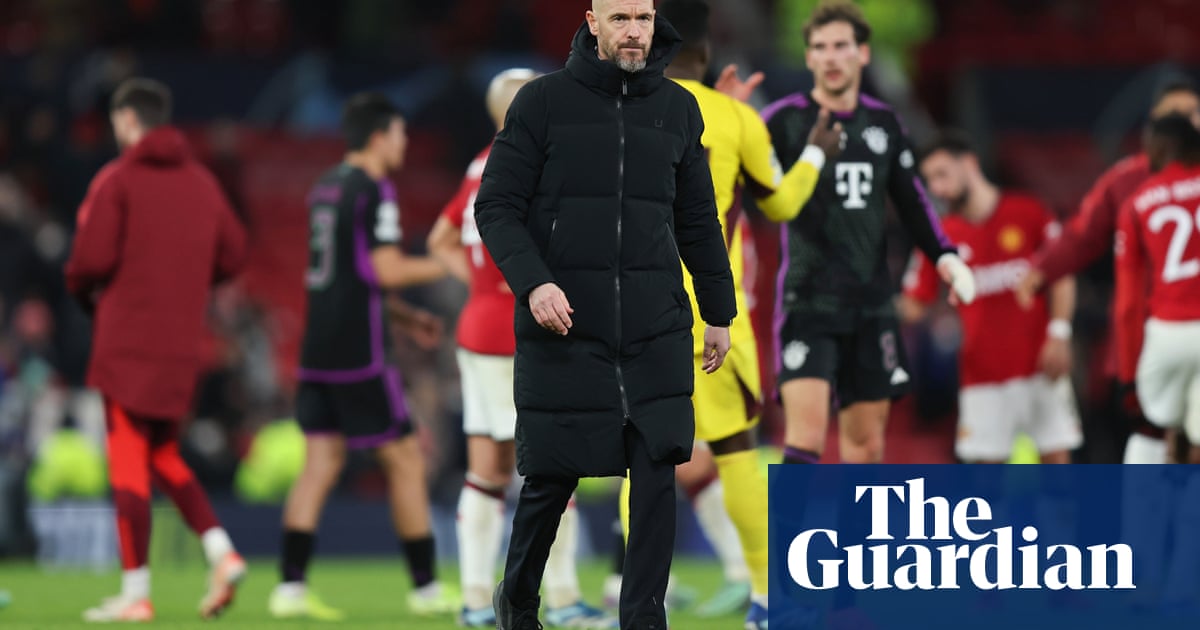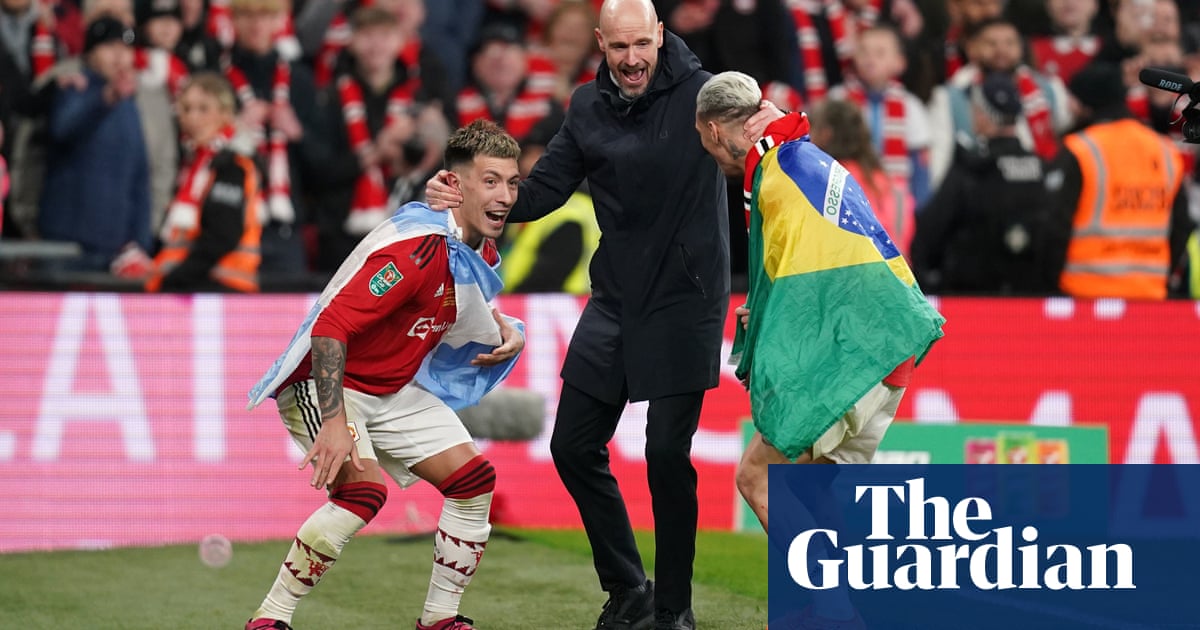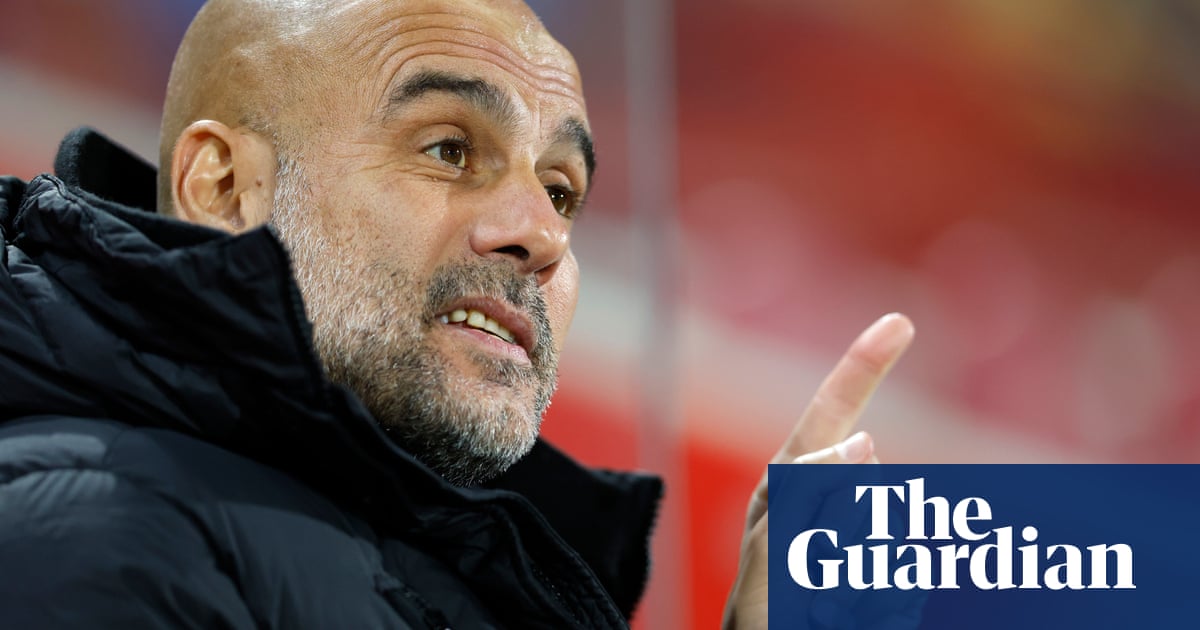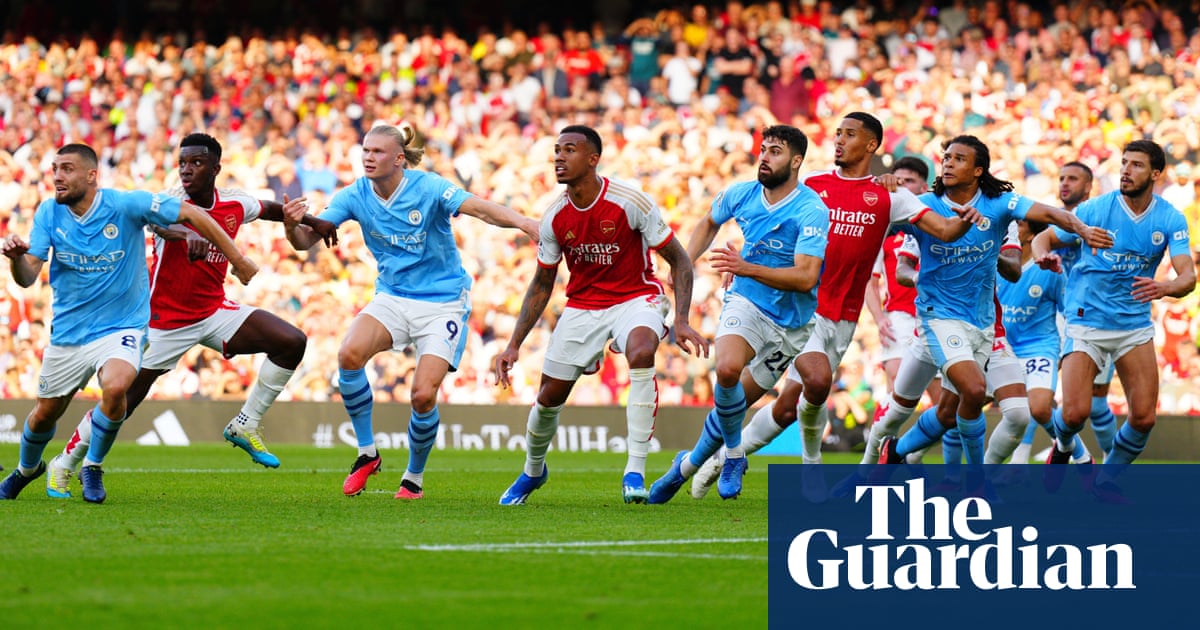
It is a mark of what a sorrowful environment Manchester United has become, a place of mournful noises, clanking chains, shouts through the wall, that the only idea to have met with near-unanimous approval in the past few months was the prospect of bulldozing Old Trafford into the ground and starting over.
There are at least some notes of comfort before the Premier League meeting with Liverpool on Tuesday night. First, the game is at Anfield, where United players being jeered by the crowd represents a return to everyday normality. And second, there has been something comforting of late in the public statements of Ralf Rangnick, whose time as interim manager has evolved into a kind of soft-pedalled trauma therapy.
It was always far-fetched to imagine Rangnick could impose a mid-season reboot on this mix-and-match squad. He has settled instead for being the only grown-up in the room, the best response a kind of priestly bedside manner, like the kindly platoon sergeant who holds your hand on the battlefield stretcher and tells you you’re going to be just fine, even as a medical orderly plunges 18 phials of morphine into your upper thigh.
The meeting with Liverpool will pique Rangnick’s curiosity in other ways. There is plenty of straightforward jeopardy here. United have a chance to make a dent in Liverpool’s chances of winning the league. Liverpool can put a stake through the heart of United’s hopes of taking fourth place, cueing up another season of stasis.
But the most significant subplot is the sense of contrast, and of mimesis. Liverpool are in many senses where United hope to be. The likely hire of Erik ten Hag is an attempt to follow the Jürgen Klopp template for success. Six years ago Klopp had achieved a similar level of success at a similarly placed club. He had the same sense of settled methods and achievable recruitment needs. Ten Hag is an attempt to follow that path. It makes sense, or at least – and this is a low bar – as much sense as anything United have tried to do in recent memory.
Beyond this there is the question of style, and above all of “physicality”, an area where Liverpool have been market leaders in the past few years. This has been a common theme of Rangnick’s public musings. “We were second best with regards to physicality,” he said after the draw at Leicester this month. “You cannot win games only in a technical way, you also have to show physicality,” was his verdict on the draw with Southampton in February. “It was not a problem of formation, but of energy and of intensity,” he announced in December after the draw with Newcastle.
What does Rangnick mean by this? The most obvious take, the Roy Keane dynamic, is to see a lack of physical pressure as cowardice in the trenches, character-flaw, hairstyle-obsession, Instagram debauchery. Towards the end of the Premier League defeats by Liverpool and Manchester City there was a kangaroo-court element to the TV punditry panels of ex-United players, a kind of sensual delight in declaring here is a team that can be saved only by simple acts of effort, violence, morally redemptive fouling.
There is a reason Rangnick speaks about this in a more considered way. That “physicality” is a tactical thing too, bound up in the changing nature of elite football. At clubs like Liverpool and Manchester City physical relentlessness has become a necessity, an element in recruitment decisions, and a non-negotiable baseline alongside all the technical qualities.
The idea football has become less physical rests on that fixation with bangs and booms and crashes. In a Klopp or a Pep Guardiola team physicality refers also to the kind of drilled passing and movement that exhausts and degrades an opponent. Pressing, moving, passing, pressing some more: all of these are acts of violence. What was exposed in those United defeats wasn’t moral decadence, but an inability to sustain that intensity, physically and tactically.
Perhaps the best way of registering this altered physicality is via the change in what tackling signifies, also the keenest measure of Guardiola’s influence. Twenty years ago the best teams made the most tackles. The top two tacklers in the league were Arsenal and Manchester United. Fast forward to Guardiola’s first season at City and this was still the case: five of the top six also ended up in the top 10 tacklers.
The following year this trend was simply dynamited out of existence. City racked up 100 points and won the league by a mile, while also finishing 18th on the tackle table. It is now a total inversion: the better you are the fewer tackles you make. Currently City, Liverpool, Arsenal, West Ham and Chelsea are the bottom five in tackles made. Liverpool are 88th for tackles in Europe’s top five leagues. City, spectacularly, are 98th (ie, last).
This is modern physicality: keep the ball, steal the ball, press the ball, move constantly “What is tackles?”, Guardiola famously asked. Tackles are how you know you’re losing, that control has been lost, that you’re leaving a gap for the counter thrust.
Collisions and duels are still vital. Liverpool pressed hard from the front like their old selves at Wembley on Saturday. But really the idea is to work and run together, and it is in these joined-up qualities that United also fall short. Here we have a goalkeeper who stays on his line, partnered with a slow, low central defence, creating a familiar stodge in deep areas. The central midfield is poor at forward passing, a disastrous blockage in a team where the attack (which stays upfield) is your real strength. As for pressing high, well, we do have this one guy who’s very good at finishing ...
By contrast the fit between Liverpool’s style and personnel provides heat not friction. A high defensive line works when you have speed and positional brilliance in central defence. Let the full-backs rampage: we have powerful workaholic midfielders. And at least two of that front three have to be ready to press hard all game.
This is not to say United lack the quality to stretch opponents who have much more riding on this game. This will be Liverpool’s sixth game in 17 days, two more than United, with travel and big-match adrenaline chucked in. But as Rangnick himself has suggested, such is the difference right now in basic intensity, just pressing that throttle for long enough could make the difference.












